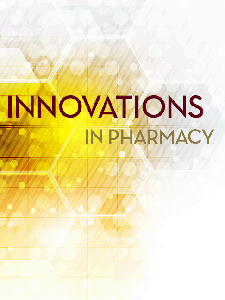Exploring the Impact of Technology Use with Cosmetic Science Guest-Speakers: A Qualitative Study
Gabriella Baki
The University of Toledo
Michael J Peeters
The University of Toledo
DOI: https://doi.org/10.24926/iip.v10i2.1604
Keywords: guest-speaking, qualitative, teaching, learning, cosmetic science, technology
Abstract
Improvements in current classroom technology such as video conferencing have allowed geographically-distant guest-speakers to participate in teaching. However, is time and effort that faculty may spend coordinating guest-speakers helpful for their students’ learning? Relevance is key to motivation and learning, and therefore, it would seem that professionals who can share industry applications and their experiences should help promote relevance. During the core application-based cosmetic science coursework in an undergraduate cosmetic science and formulation design degree at the University of Toledo, multiple industry experts come in as guest-speakers. The majority of them join remotely via a real-time video conferencing tool. The purpose of this study was to both explore the impact of guest-speakers on these students’ learning, as well as to understand how guest-speakers might also value these experiences. Twenty-two students and sixteen guest-speakers participated. Using a qualitative approach, authors used an inductive thematic analysis of transcripts from focus-groups of students and interviews of guest-speakers. Twenty-one codes were identified, and five themes were constructed for both the student and guest-speaker groups. Themes from both groups were integrated and distilled into an essence related to teaching and learning. Our results indicated that students greatly appreciated the relevance from guest-speakers to augment their introductory/foundational instruction from faculty. From guest-speakers’ perspectives, teaching students was formative towards developing informed future coworkers for the cosmetic industry. Technology enabled much of this. Overall, we believe that professional, experienced guest-speakers can make an impact on students. We hope that other higher education institutions might consider technology to foster use of guest-speakers within their programs.
Article Type: Original Research



